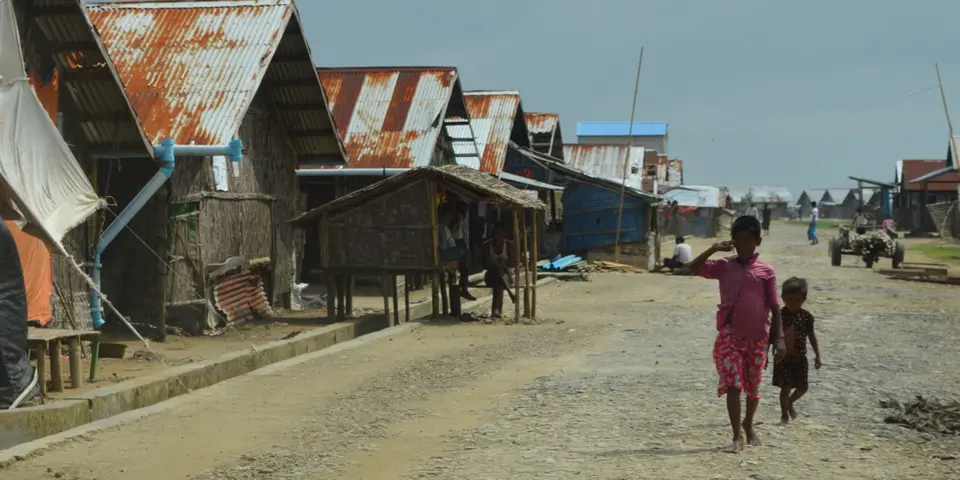
ASEAN parliamentarians warn of looming regional crisis resulting from systematic discrimination in Myanmar’s Rakhine State
October 09, 2015

BANGKOK – Increasingly marginalized and desperate, Rohingya Muslims in Myanmar’s Rakhine State are being forced to flee in ever-greater numbers, exacerbating a regional crisis that ASEAN leaders are woefully ill prepared to cope with, ASEAN Parliamentarians for Human Rights (APHR) warned today.
“ASEAN met to discuss the refugee crisis in May, but lamentably avoided a much-needed discussion of its underlying drivers, which are rooted in Rakhine State,” APHR Chairperson and Malaysian MP Charles Santiago said. “ASEAN leaders are burying their heads in the sand, and it’s going to come back to bite them.”
At the release of their latest report, Disenfranchisement and Desperation in Myanmar’s Rakhine State: Drivers of a Regional Crisis, APHR warned that exclusionary government policies, including mass disenfranchisement of Rohingya ahead of November’s historic general election, is exacerbating the already intense sense of desperation within Rohingya communities.
The region’s failure to respond in any meaningful way to the impending catastrophe has been unfortunately predictable, but governments will be forced to stand up and take note soon when sailing season begins again, APHR cautioned. Unless ASEAN addresses the situation in Rakhine State directly, more Rohingya will continue to try and leave the country by any means necessary.
“The Myanmar government is driving these individuals out through a set of deliberate policies that constitute systematic persecution,” Santiago said. “Rohingya have their movement restricted, their livelihoods destroyed, and their ethnic identity flatly denied by government officials.”
APHR’s new report uncovers how recent developments, including the effective denial of political representation to Rohingya, have compounded the existing drivers of Rohingya flight.
Myanmar MP U Shwe Maung, who is Rohingya, was one of dozens of Muslim candidates denied the opportunity to run for office in the upcoming elections.
“Rohingya, as well as most Muslims in Myanmar, are being targeted for exclusion from politics,” Shwe Maung said. “Soon they will have no one to represent them in government. This leaves my people with little hope that things might improve in the future. For many Rohingya, their only hope lies elsewhere in the region. They feel they must leave.”
Furthering this perception, APHR argued, is the proliferation of anti-Muslim sentiment, driven by increasing hate speech and the government’s failure to counter it.
“Extreme nationalists are driving the agenda,” Santiago warned. “We spoke with religious leaders in Myanmar, who told us that they are fearful of what the future holds for all ethnic and religious minorities in the country.”
APHR’s report includes recommendations, developed by parliamentarians from across Southeast Asia, for how Myanmar, other ASEAN governments, and the region as a whole can begin to address the looming crisis.
“ASEAN must look past stopgap solutions that address only the effects of widespread persecution of people in Myanmar and begin to address the persecution itself,” the report concludes.
First and foremost, this means pressuring the Myanmar government to end rights abuses and allow for meaningful Rohingya participation in political life.
APHR also called on ASEAN and member state governments to put in place measures to protect vulnerable Rohingya fleeing Rakhine State by sea.
“With sailing season set to begin in the coming days and weeks, regional leaders must act. We need a regional refugee framework that ensures safe and legal means for seeking asylum,” Santiago said.
Echoing previous statements, APHR argued that the persecution of Rohingya represents a grave problem, not only for Myanmar, but for the region as a whole.
“The dire situation in Rakhine State is an ASEAN problem—and not only because of what the world witnessed in May. It is a fundamental moral question ASEAN leaders must grapple with as they seek to move forward with their proposed ASEAN Community by the end of 2015,” Santiago added.
ASEAN Parliamentarians for Human Rights (APHR) was founded in June 2013 with the objective of promoting democracy and human rights across Southeast Asia. Our founding members include many of the region's most progressive Members of Parliament (MPs), with a proven track record of human rights advocacy work.